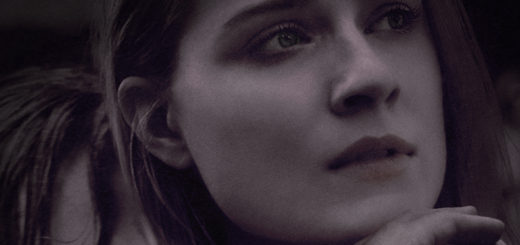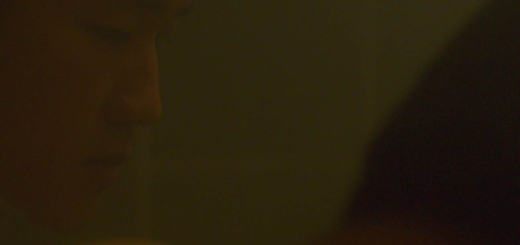KNIGHT OF CUPS Review
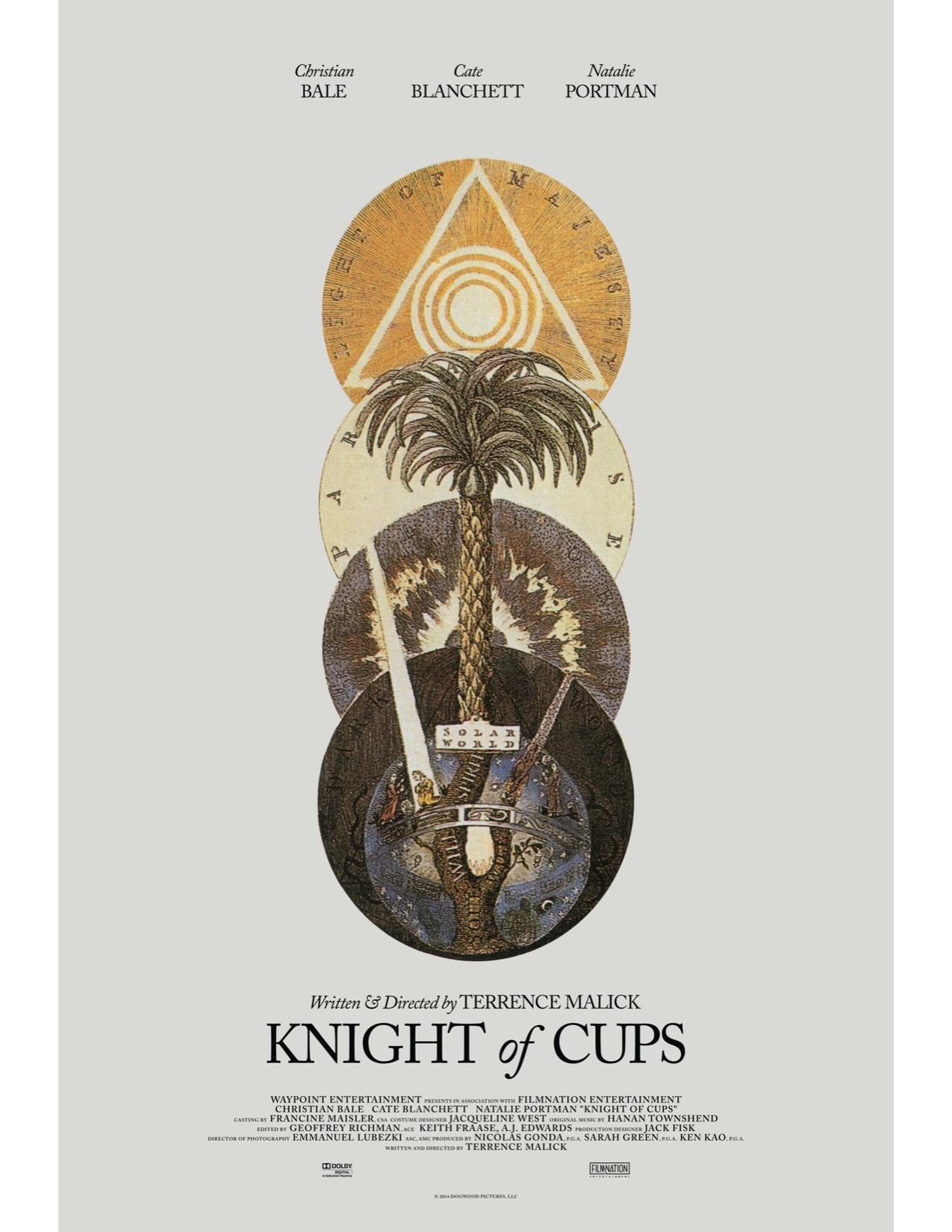
Director: Terrence Malick
Genre: Drama
Year: 2016
Many would posit that, much like Kubrick, there’s a Terrence Malick film out there for everybody. I used to agree with that. For me, BADLANDS and THE THIN RED LINE are two of the great films of modern cinema, and I completely understand those who rally in support of THE TREE OF LIFE and DAYS OF HEAVEN. But with KNIGHT OF CUPS, the auteur’s latest entry into his introspective canon, I have come to the resolute conclusion that Malick has released a film that doesn’t actually resonate with anybody. A film so focussed on the theatrics of what can go wrong in a person’s life if they live with superficial motivations that the only people who might get a kick out of it are the same Hollywood elite who probably knock Malick’s films for being inaccessible. KNIGHT OF CUPS is a flaccid love affair with excess, hell-bent on spending two hours to tell the viewer what The Beatles were able to tell me in under three minutes.
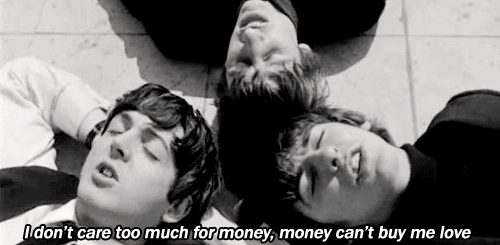
There, you’ve seen the movie, now go home
Glitz, glam, Los Angeles high society, and the bourgeois lifestyle of the Hollywood elite; Malick follows a mute, bumbling Christian Bale on his adventures through the city of angels. As KNIGHT OF CUPS messily zig-zags from chapter to chapter, Malick manages to capture a certain hopelessness in a milieu that is otherwise defined by success. Steeped in a masculine aesthetic, Bale’s male gaze penetrates the female form, constantly seeking a quick fix through plastic relationships that drive him from high-rise hotels to neon strip clubs. If that sounds a lot like SHAME to you, it’s because it is, only notably less compelling. As Bale’s search for fulfillment takes him further and further down the rabbit hole of wretchedness, his epiphany that money can’t buy him love flips his life upside down.
If that’s really what Malick wanted his audience to take away from KNIGHT OF CUPS, then maybe he’s at the end of his rope. The rich-man-is-an-empty-shell scenario has been done to death in children’s content and probably had its cinematic orgasm with THE WOLF OF WALL STREET, so proposing that this needs to be explored any further not only feels preposterous, but like a waste of time for a talent like Malick. Granted, WOLF OF WALL STREET is a relatively recent release, and given the billboards that are visible in KNIGHT OF CUPS, this film has been in production since 2012, but that only further asserts what a waste of time it all was. What’s more, it’s undeniable that Malick’s aesthetic, although not the most avant-garde of auteurs on the map, is still rather difficult to digest, so forcing audiences to consume a narrative that’s as vapid as its protagonist is ultimately sadistic. On that front, Scorsese had the undeniable upper hand.
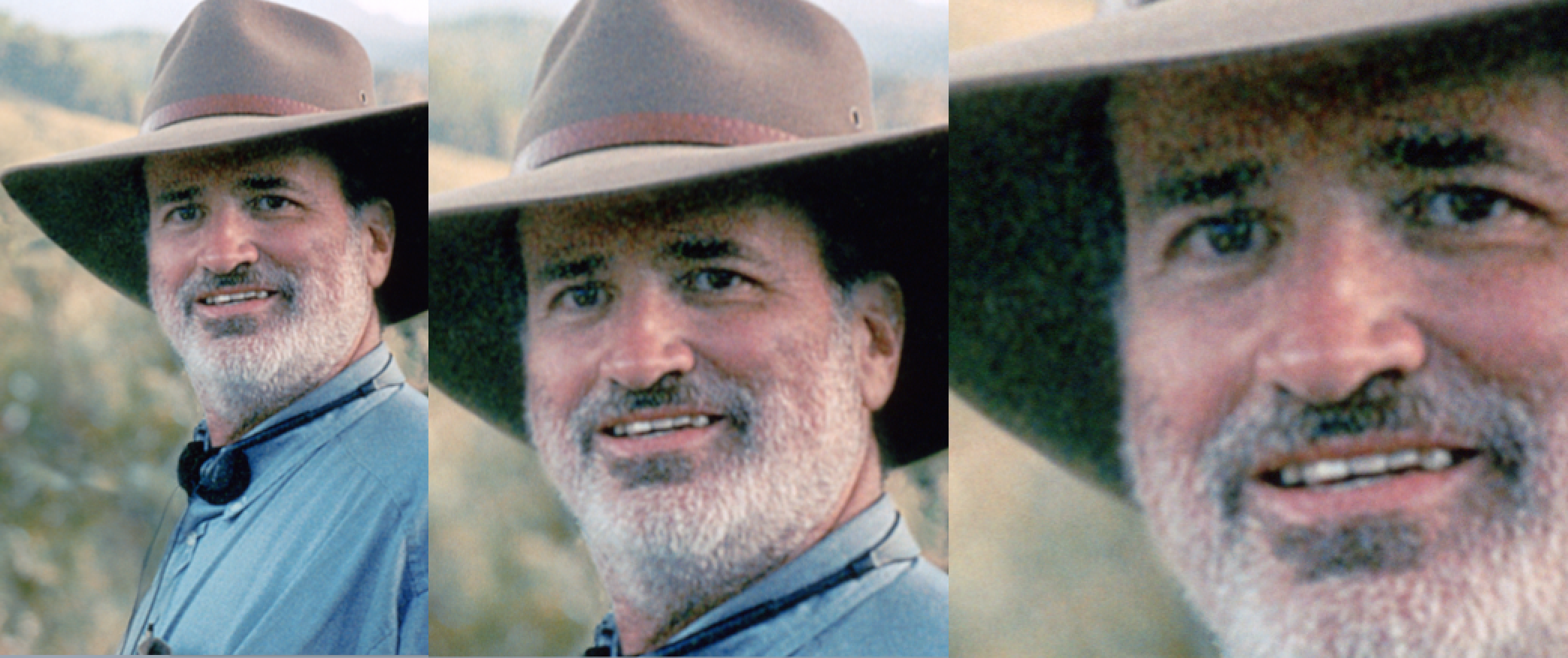
“You motherfucker…”
My biggest gripe with Malick has always been his insistence on using A-list stars in his films, a directorial decision that always felt misguided for a man trying to channel a spiritual vérité. Brad Pitt always looked like Brad Pitt to me in THE TREE OF LIFE, and although the merits of the final product managed to compensate for this casting choice, it’s always been a thorn in my eye when consuming Malick’s work. Ironically, the only instance where this didn’t bother me was the star-studded THE THIN RED LINE, a film that managed to reduce the permeating celebrity by costuming each individual in virtually identical uniforms, forming a broader anonymity. Suddenly, celebrities felt like they weren’t cast for their acting chops but because their recognizable faces helped me distinguish them in the otherwise chaotic field of battle.
KNIGHT OF CUPS toes a fine line, managing to excuse its casting choices of Bale, Blanchett, Portman, Poots, Banderas and co. due to its milieu, but even then, telling a story about a wealthy man who can’t find happiness would be far more compelling if I wouldn’t be distracted by the fact that he also happens to be Batman. While this might be an unfair criticism — after all, actors exist for a reason — it only made me wonder why Malick didn’t decide to tell the story of a celebrity’s son, somebody who hadn’t accomplished anything in their life and had everything handed to them on a silver platter. Thematically, this would have been a far more potent approach to the narrative and would have certainly fit in better with the film’s tonality, not to mention resulting in a more compelling casting choice.
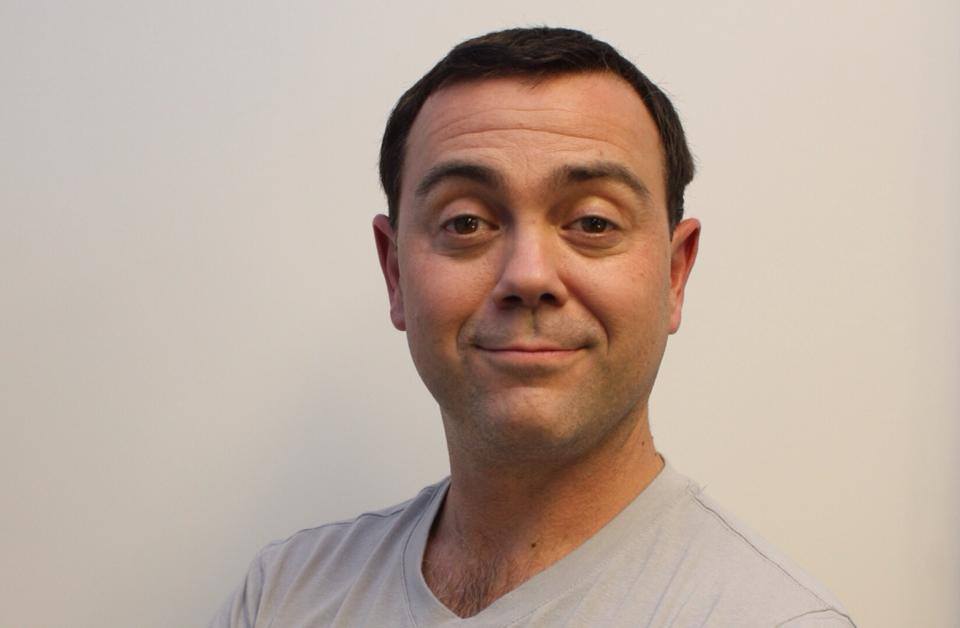
I mean, did Joe Lo Truglio really need to play an extra in this film?
While Lubezki’s work here is competent, it is, as always, an aspect of Malick’s filmmaking that’s starting to feel progressively more lazy. The perfectionist visuals of BADLANDS are not to be found anywhere. The meticulous compositions from DAYS OF HEAVEN are a thing of the past. For all intensive purposes, pre-Chivo Malick is pretty much dead at this point. THE NEW WORLD showcased a balanced blend of both eras of the director’s career, but this growing permission to let Lubezki just film left and right and patchwork everything in post-production is not only absurd, it just kind of sucks. It certainly doesn’t help that everyone exclaims that THE TREE OF LIFE is Malick’s magnum opus, because despite its overwhelming superiority to the two films he released afterwards, it still lacks that touch that made his pre-Lubezki efforts feel like they were labored over in production, not stitched together in the editing bay.
KNIGHT OF CUPS never manages to maintain a narrative throughline the same way THE TREE OF LIFE did. Its editing is frantic and its sequences feel like sloppy non-sequiturs, as if someone else is trying to imitate Malick. This swells to the point of comedy, where the pseudo-philosophical narrations of “my son, my son” feel like they’ve just been copy/pasted from THE THIN RED LINE. Even the love-hate relationship between the two brothers feels shoehorned, and Malick’s love for capturing water has reached a fetishistic level that no longer feels innovative, but like a last resort for when a scene runs out of ideas. The lazy cuts form a disjointed series of sequences that ignore the necessity for any continuity, emulating Bale’s lost, wandering spirit. While this might be a fair artistic decision, it also feels resolutely insecure about itself in the process. For a film that makes the editing so easy on itself, especially since there’s hardly any dialogue, it sure as hell spent no time crafting a more compelling narration, and that’s where KNIGHT OF CUPS really lost me, especially since voice-over has always been one of Malick’s strongest selling points.
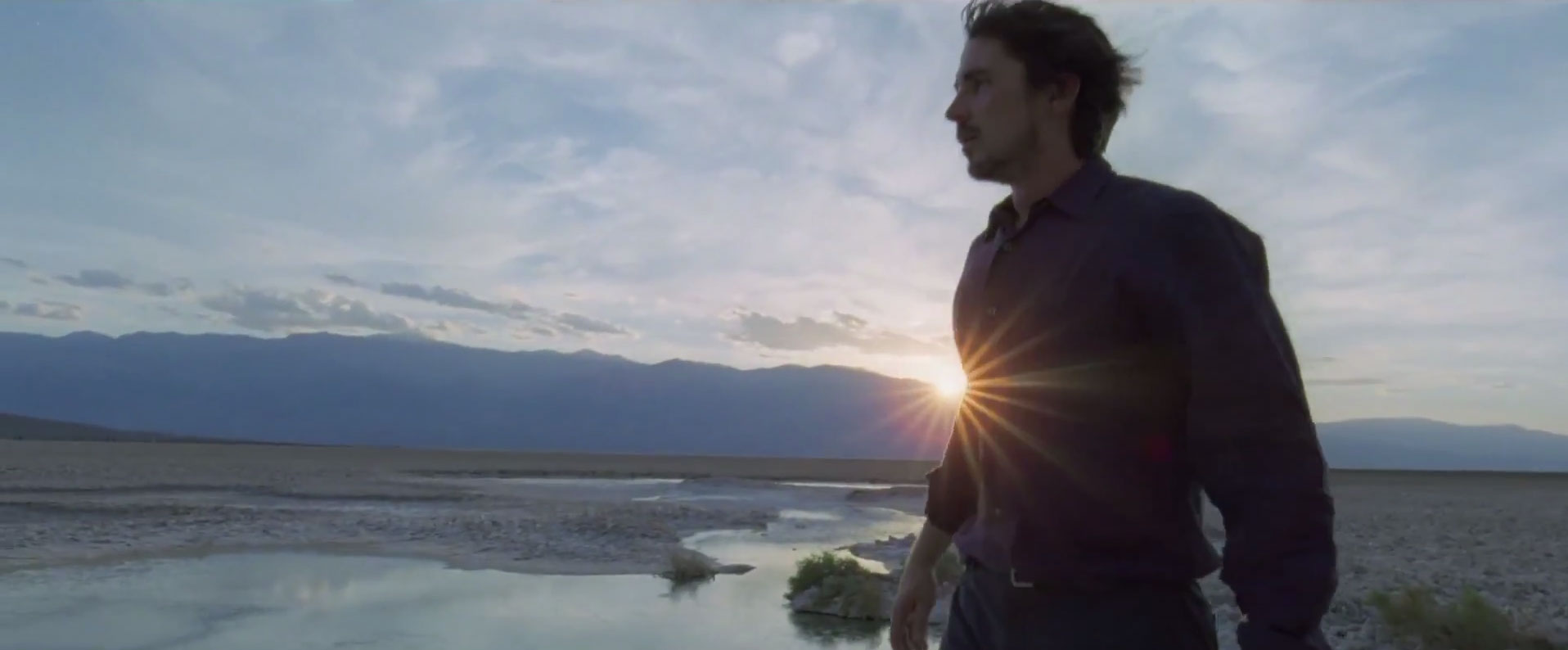
Chivo: The drunk frat brother at your party who hates that he’s not the center of attention for the night
The greatest thrill I got out of Malick’s aimless film was that I’ve visited many of the locations on screen. But when toying with specific locations and visual motifs, whether it be the beaches of Santa Monica or the mansions of Beverly Hills, they need to service both theme and narrative. When these essential assets of a filmmaker’s aesthetic only assist themes, the film’s narrative falls by the wayside, resulting in a cinematic menagerie that feels insecure about its intentions. When forcing a meditation on a life of excess only to self-indulgently say nothing in the process, Malick should have anticipated that his film was bound to be the most forgettable release in his filmography. Frustratingly simple despite all its efforts to appear intellectual, high brow, and ambitious, KNIGHT OF CUPS is not only a letdown because it’s miles behind what once made Malick one of the great perfectionists of modern cinema, but it’s also the first film of his that’s just left me wondering why my parents’ vacation videos aren’t getting cinematic releases as well.
Verdict: Do Not Recommend

